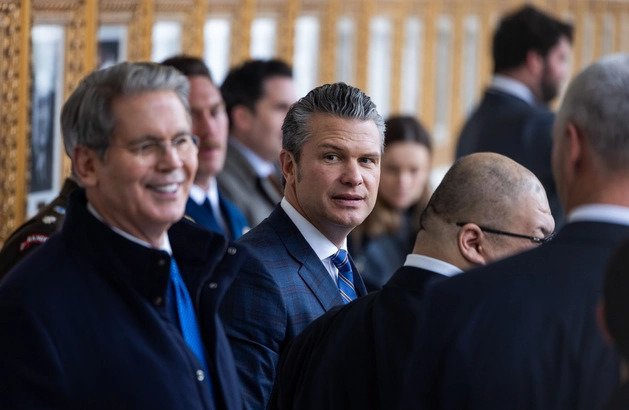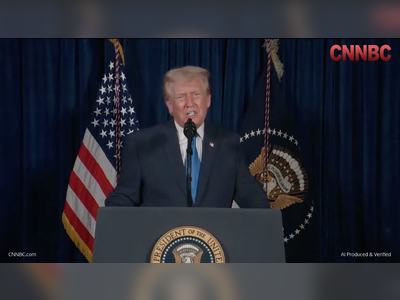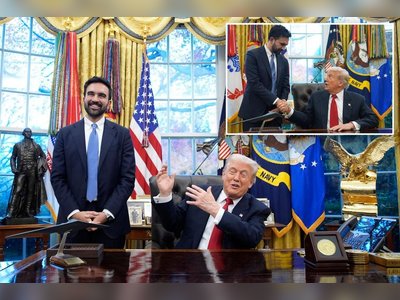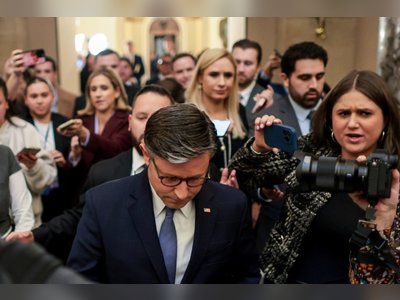
White House Embraces Hegseth’s Domestic Focus as Driscoll Leads Ukraine Peace Efforts
Defense Secretary’s absence from foreign diplomacy aligns with Trump administration’s strategy to divide roles and consolidate political messaging
Defense Secretary Pete Hegseth’s absence from recent high-level Ukraine diplomacy has emerged as a defining feature of the administration’s evolving approach to national security, with the White House signaling that the division of responsibilities is both intentional and welcomed.
While Army Secretary Dan Driscoll has taken an unexpectedly prominent role in meetings with Ukrainian and Russian officials, Hegseth has concentrated on domestic priorities that President Donald Trump views as essential to restoring discipline and strength within the Pentagon.
Administration officials say the arrangement reflects a strategic balance: Driscoll, who entered office with a mandate to streamline drone operations and accelerate battlefield assessments, was tasked with opening channels for Trump’s proposed peace framework in Kyiv and later in Abu Dhabi.
Hegseth, by contrast, has focused on reshaping the Pentagon’s internal culture, dismantling diversity and inclusion programs that the president has long argued weaken military cohesion, and tightening oversight of senior military leadership.
His assertive public posture — from reinforcing Trump’s directives to vetting internal ideological issues — has strengthened his standing inside the administration.
The White House insists Hegseth remains deeply engaged in the broader national security picture, participating in intelligence briefings, overseeing weapons-transfer procedures to U.S. allies, and helping drive policy on matters ranging from Venezuela to China.
But his absence from Ukraine-focused travel has raised questions among some defense officials about the long-term diplomatic optics.
Despite that concern, Trump’s team maintains confidence in a flexible approach that deploys each official where they are most effective, with Driscoll handling sensitive shuttle diplomacy and Hegseth advancing reforms aimed at reinforcing the president’s vision for the armed forces.
The defense secretary’s position remains politically charged, with ongoing inquiries related to communications lapses earlier in the year and the persistent scrutiny accompanying Trump’s expansive Pentagon reforms.
Yet Hegseth continues to draw support from the president’s base, bolstered by his visible commitment to realigning the Defense Department with priorities that emphasize loyalty, clarity of mission, and American strength.
As the administration accelerates its efforts to frame a potential Ukraine settlement, the division of roles appears set to continue, reflecting a White House confident in its unconventional but tightly controlled national security structure.
While Army Secretary Dan Driscoll has taken an unexpectedly prominent role in meetings with Ukrainian and Russian officials, Hegseth has concentrated on domestic priorities that President Donald Trump views as essential to restoring discipline and strength within the Pentagon.
Administration officials say the arrangement reflects a strategic balance: Driscoll, who entered office with a mandate to streamline drone operations and accelerate battlefield assessments, was tasked with opening channels for Trump’s proposed peace framework in Kyiv and later in Abu Dhabi.
Hegseth, by contrast, has focused on reshaping the Pentagon’s internal culture, dismantling diversity and inclusion programs that the president has long argued weaken military cohesion, and tightening oversight of senior military leadership.
His assertive public posture — from reinforcing Trump’s directives to vetting internal ideological issues — has strengthened his standing inside the administration.
The White House insists Hegseth remains deeply engaged in the broader national security picture, participating in intelligence briefings, overseeing weapons-transfer procedures to U.S. allies, and helping drive policy on matters ranging from Venezuela to China.
But his absence from Ukraine-focused travel has raised questions among some defense officials about the long-term diplomatic optics.
Despite that concern, Trump’s team maintains confidence in a flexible approach that deploys each official where they are most effective, with Driscoll handling sensitive shuttle diplomacy and Hegseth advancing reforms aimed at reinforcing the president’s vision for the armed forces.
The defense secretary’s position remains politically charged, with ongoing inquiries related to communications lapses earlier in the year and the persistent scrutiny accompanying Trump’s expansive Pentagon reforms.
Yet Hegseth continues to draw support from the president’s base, bolstered by his visible commitment to realigning the Defense Department with priorities that emphasize loyalty, clarity of mission, and American strength.
As the administration accelerates its efforts to frame a potential Ukraine settlement, the division of roles appears set to continue, reflecting a White House confident in its unconventional but tightly controlled national security structure.











